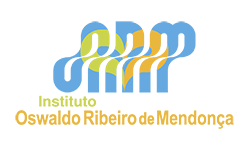Educating City
It is the IORM manifesto for the Educating City. This is where our projects converge, “the holy place” and the big reason. An educating city will see everything we do as educational content. IORM is not, nor will it be a school, but the space where education also takes place. Education happens in all spaces.
Education happens at various times and spaces not only in space and at school time. The Educating City concept gained strength with the Educating Cities movement, which began in 1990 with the I International Congress of Educating Cities, held in Barcelona, Spain.
IORM participates in the steering committee of Projeto Guaíra, Educating City, implemented in 2016 and which understands education as a guiding element of city policies and the educational process as permanent and integrative.
A process that must be guaranteed to everyone on an equal basis and that can and should be enhanced by the appreciation of diversity intrinsic to city life and the educational intentionality of the different aspects of its organization: urban planning, participation, decision making, occupation of public spaces and facilities, the environment, cultural, sports, recreational and technological offerings. Recognizing and enhancing the educational and collective dimension of public and private initiatives is part of IORM’s mission.
The Educating Municipality turns to consolidate a participatory and integrative management culture that critically educates active democracy, autonomy, freedom, responsibility, dialogue, sustainability and planetary consciousness. In 2015, the Oswaldo Ribeiro de Mendonça Institute began the process of approaching the education secretariats of the municipalities where it works to build a joint work for Integral Education.
The IORM is one of the forces to constitute a syllabus and a joint practice that allows the integral development of children and adolescents, and the partnership and dialogue with the schools of the official school system. It also hosted the meeting of the Child and Adolescent Care Network of the municipality of Orlândia.
The purpose of the Network is to bring people and organizations together, in a democratic and participatory manner, around the guarantee of citizens’ rights. In an articulated and integrated manner, there is an exchange of information and knowledge between representatives of the Municipal Government, Judiciary and Third Sector who are active in the areas of Social Assistance, Education, Health.
The Guaíra Project, Educating City brings together people and organizations that, in common, are committed to contributing to the integral development of children and adolescents.
The Educating Municipality is not only concerned with the timely achievement of the objectives and goals of its projects or programs, but, above all, with the consolidation of a participative and integrative management culture that critically educates active democracy, autonomy, freedom, responsibility, dialogue, sustainability and planetary consciousness. It also presupposes joint municipal, consortium actions, organized in a communicative way, in dynamic, face-to-face and virtual networks, and built in such a way as to mutually strengthen each participant of the proposed initiatives.
The first step of the Project was the mapping of the Rights Guarantee System in the city and the work to strengthen and implement the actions already developed, based on the principles and practices of an educating city. The management and construction of the Educating City are approached by different institutions and people linked to education.
The Steering Committee assesses that there are numerous aspects of local education with potential for development, many of which are unknown. Directly in the project is a team of professionals: coordinator, supervisor, pedagogue, dance teacher, art teacher, reading teacher and judo teacher.
It is carried out in partnership with the Guairense Charitable Society – Sogube, the Municipal Council for the Rights of Children and Adolescents, and the sponsorship of the Itaú Social Foundation through the Municipal Fund for the Rights of Children and Adolescents.
